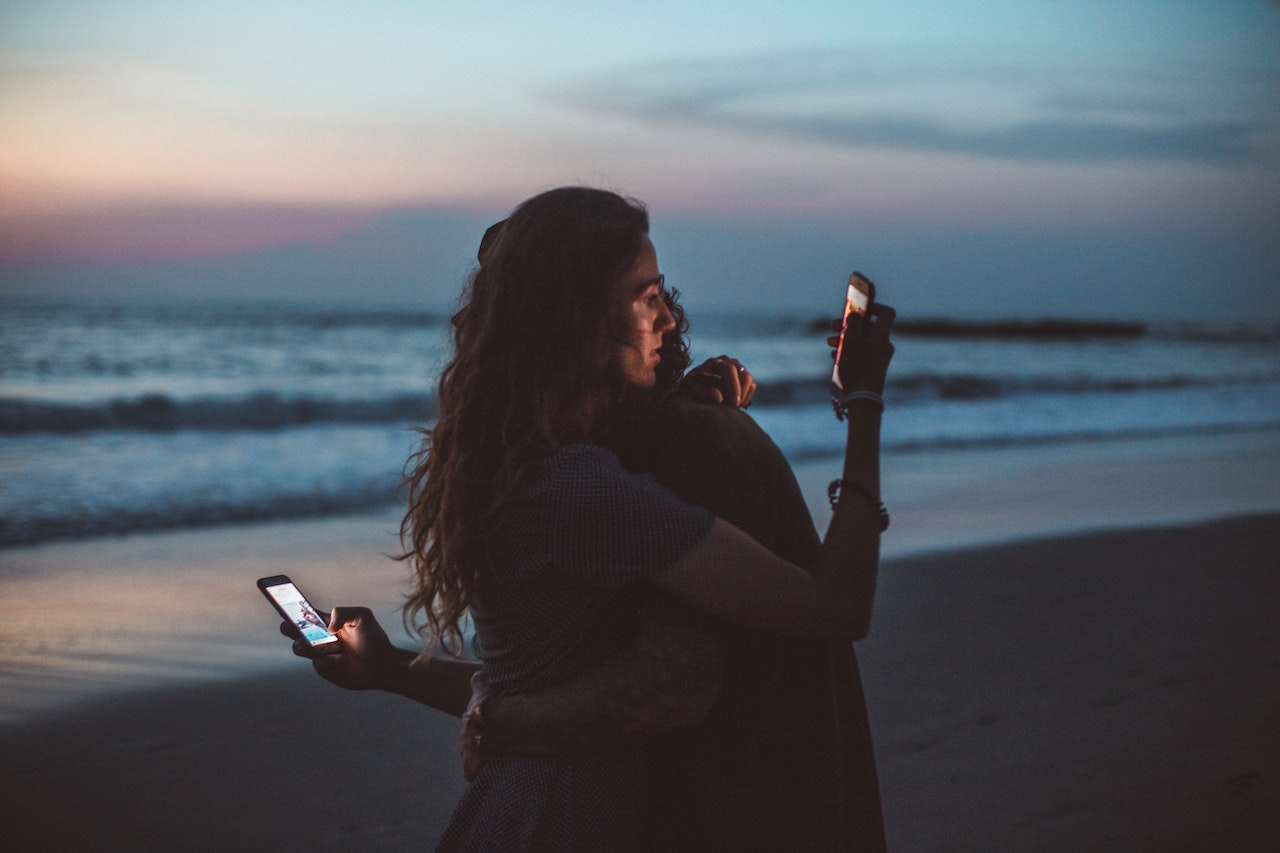Comments
- No comments found

Phubbing, the act of prioritizing your phone over social interaction, is a common but offensive behavior that can harm relationships.
While phones offer constant stimulation and convenience, excessive phubbing can lead to negative consequences in romantic relationships.
Lack of presence and engagement often leads to feelings of resentment and insignificance in the person who is being phubbed. It can erode relationship satisfaction and increase conflict about phone use. Moreover, phubbing victims may respond by retaliating with their own phone use, further diminishing the quality of interaction and connection in the relationship. Phubbing poses a significant threat to the well-being and harmony of relationships, emphasizing the importance of addressing this behavior for healthier, more fulfilling connections.

Phubbing is becoming more prevalent in today's digital age. Several factors contribute to the increasing trend of phubbing:
1. Smartphone Dependence: With the growing reliance on smartphones for various aspects of life, people find it challenging to disconnect from their devices. The constant need for information, communication, and entertainment keeps individuals glued to their screens.
2. Fear of Missing Out (FOMO): The fear of missing out on important updates, news, or social events drives people to frequently check their phones. This fear creates a sense of urgency to stay connected, even in the presence of others.
3. Social Media Engagement: Social media platforms are designed to be addictive, encouraging users to engage frequently. This constant social connectivity can lead individuals to prioritize their online interactions over face-to-face conversations.
4. Work-Related Communication: Many individuals use their smartphones for work-related purposes, making it challenging to set boundaries between professional and personal life. This often results in checking work emails and messages during personal time, including romantic outings.
5. Digital Entertainment: Smartphones offer a plethora of entertainment options, from games and videos to streaming services. The easy accessibility of digital entertainment contributes to prolonged phone usage, even in social settings.
6. Lack of Awareness: Some people may not be fully aware of the impact of their phubbing behavior on their relationships. They might not realize that their constant phone use is causing discomfort or annoyance to those around them.
7. Social Norms: As phubbing becomes more common, it may be perceived as a socially acceptable behavior in certain contexts. This normalization can further reinforce the habit of prioritizing phones over interpersonal interactions.
While smartphones offer numerous benefits, it's essential to strike a balance between digital engagement and real-life connections. Recognizing the reasons behind the rise in phubbing can help individuals make conscious efforts to minimize this behavior and maintain meaningful relationships.
The allure of smartphones is undeniable, with easy access to information, communication, and entertainment. Boredom can drive phubbing, as people seek relief from loneliness and the fear of missing out. However, when a phone becomes more enticing than a romantic partner, it can harm the relationship.

Phubbing is linked to lower relationship satisfaction and can lead to conflicts about phone use. Anxiously attached individuals may be more affected by phone-related conflicts. Additionally, phubbing can indirectly reduce overall life satisfaction by negatively impacting relationship satisfaction and quality.
People respond differently when phubbed by their romantic partners. They may feel resentment, become curious about their partner's phone use, or retaliate by using their own phones. Retaliatory phubbing can worsen relationship well-being.
Joint phubbing, where both partners are engrossed in their phones simultaneously, can diminish the quality of social interaction. While occasional phone use together may not harm a relationship, excessive joint phubbing represents a missed opportunity for genuine social interaction and relationship maintenance.

Phubbing, or phone snubbing, can strain relationships and hinder meaningful interactions. To reduce phubbing and strengthen your connections with others, consider implementing these strategies:
1. Prioritize Quality Time: Designate specific times for phone use, such as during breaks or when alone, and commit to being fully present during social interactions.
2. Establish Phone-Free Zones: Create designated phone-free zones in your home or during outings, such as the dining room, bedroom, or during date nights.
3. Use Technology Mindfully: Set app limits, notifications, and screen time tracking on your phone to avoid mindless scrolling and minimize distractions.
4. Communicate Openly: Talk to your partner or loved ones about your desire to reduce phubbing and ask for their support in holding each other accountable.
5. Engage in Active Listening: When someone is talking to you, put your phone away and actively listen. Show empathy, ask questions, and validate their feelings.
6. Practice Digital Detox: Dedicate specific periods, like evenings or weekends, to digital detoxing. Use this time to connect with nature, engage in hobbies, or have face-to-face conversations.
7. Set Boundaries: Establish clear boundaries for phone use in your relationships. Agree on guidelines that respect each other's need for undistracted time together.
8. Be a Role Model: Lead by example and demonstrate the behavior you want to see in others. When you prioritize in-person connections, it encourages those around you to do the same.
9. Plan Device-Free Activities: Organize activities or outings that inherently discourage phone use, such as outdoor adventures, board games, or cooking together.
10. Practice Gratitude: Reflect on the value of your relationships and express gratitude for the moments you share. This can reinforce the importance of being present.
11. Seek Support: If you find it challenging to reduce phubbing on your own, consider seeking support from therapists or support groups that specialize in digital addiction. Redirect your attention toward self-care and well-being activities, such as exercise, meditation, and mindfulness, to reduce the urge to constantly check your phone.
12. Use Apps for Assistance: There are apps available that can help limit your phone usage by blocking certain apps or sending reminders to take breaks from the screen.
By actively working to reduce phubbing, you can create a more attentive and fulfilling environment for your relationships, fostering deeper connections and understanding among your loved ones.
Leave your comments
Post comment as a guest